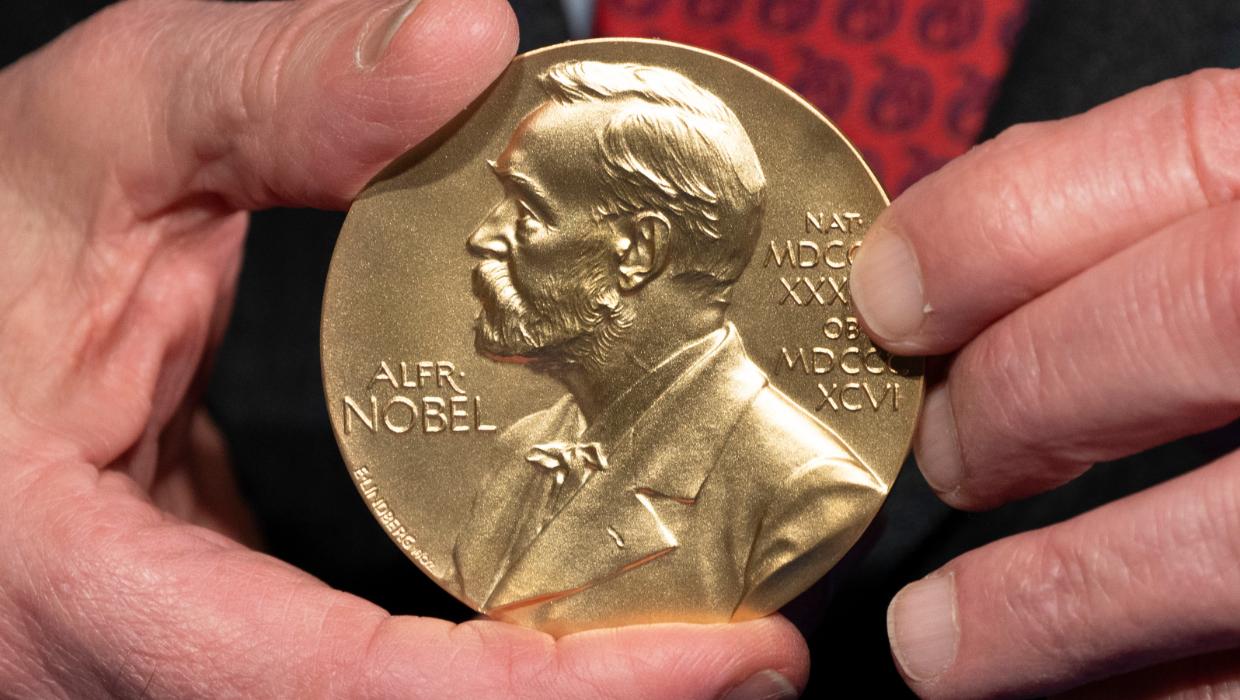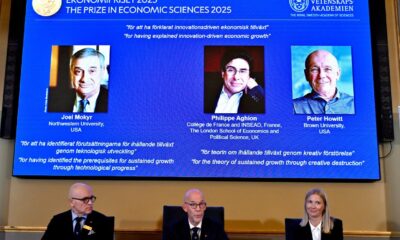Lifestyle
Three Scientists Awarded 2025 Nobel Prize in Medicine for Immune Breakthroughs

The Nobel Prize in Medicine for 2025 has been awarded to three scientists recognized for their groundbreaking discoveries in the field of immunology. The announcement was made by the Nobel Assembly at the Karolinska Institute in Stockholm on October 2, 2025. This prestigious accolade honors their significant contributions to understanding immune responses, potentially leading to innovative treatments for various diseases.
The recipients of this year’s prize have made remarkable strides in elucidating how the immune system operates. Their research has opened new avenues for the development of vaccines and therapies, particularly in combating infectious diseases and certain types of cancer. The Nobel Committee highlighted that their findings have fundamentally changed the landscape of immunological research.
One of the notable winners, Dr. Emily Chen, has focused on the mechanisms of T-cell activation. Her studies provide insights into how the body distinguishes between harmful pathogens and its own cells. Another laureate, Professor David Moore, has pioneered work on monoclonal antibodies, which have become vital in treating autoimmune diseases. The third recipient, Dr. Aisha Patel, has been instrumental in advancing our understanding of immune memory, a key factor in vaccine efficacy.
Impact on Global Health
The discoveries made by these scientists are expected to have far-reaching implications for global health. With the ongoing challenges posed by emerging infectious diseases, their work emphasizes the importance of a robust immune response. The Nobel Committee noted that their research not only enhances our understanding of basic immunological principles but also has practical applications in vaccine development and therapeutic interventions.
As nations continue to grapple with public health issues, the contributions of these scientists could play a critical role in guiding future medical research and policy. The ability to harness the immune system for therapeutic purposes could lead to breakthroughs in treating diseases that have long eluded effective interventions.
Recognition and Future Directions
The Nobel Prize is not only a testament to the individual achievements of the winners but also highlights the collaborative nature of scientific research. The committee emphasized that such advancements are often the result of years of dedication and teamwork among researchers across various disciplines.
Looking ahead, the scientific community is eager to see how these discoveries will influence ongoing research. The integration of immunological findings into clinical practice may pave the way for more effective treatments and preventive measures. As the world continues to face health challenges, the work of these Nobel laureates stands as a beacon of hope for future innovations in medicine.
The Nobel Prize in Medicine not only celebrates past achievements but also inspires the next generation of scientists to pursue research that could change the course of health and disease management globally.
-

 World1 week ago
World1 week agoPrivate Funeral Held for Dean Field and His Three Children
-

 Top Stories2 weeks ago
Top Stories2 weeks agoFuneral Planned for Field Siblings After Tragic House Fire
-

 Sports3 months ago
Sports3 months agoNetball New Zealand Stands Down Dame Noeline Taurua for Series
-

 Entertainment3 months ago
Entertainment3 months agoTributes Pour In for Lachlan Rofe, Reality Star, Dead at 47
-

 Entertainment2 months ago
Entertainment2 months agoNew ‘Maverick’ Chaser Joins Beat the Chasers Season Finale
-

 Sports3 months ago
Sports3 months agoSilver Ferns Legend Laura Langman Criticizes Team’s Attitude
-

 Sports1 month ago
Sports1 month agoEli Katoa Rushed to Hospital After Sideline Incident During Match
-

 World2 weeks ago
World2 weeks agoInvestigation Underway in Tragic Sanson House Fire Involving Family
-

 Politics2 months ago
Politics2 months agoNetball NZ Calls for Respect Amid Dame Taurua’s Standoff
-

 Top Stories2 weeks ago
Top Stories2 weeks agoShock and Grief Follow Tragic Family Deaths in New Zealand
-

 Entertainment3 months ago
Entertainment3 months agoKhloe Kardashian Embraces Innovative Stem Cell Therapy in Mexico
-

 World4 months ago
World4 months agoPolice Arrest Multiple Individuals During Funeral for Zain Taikato-Fox















